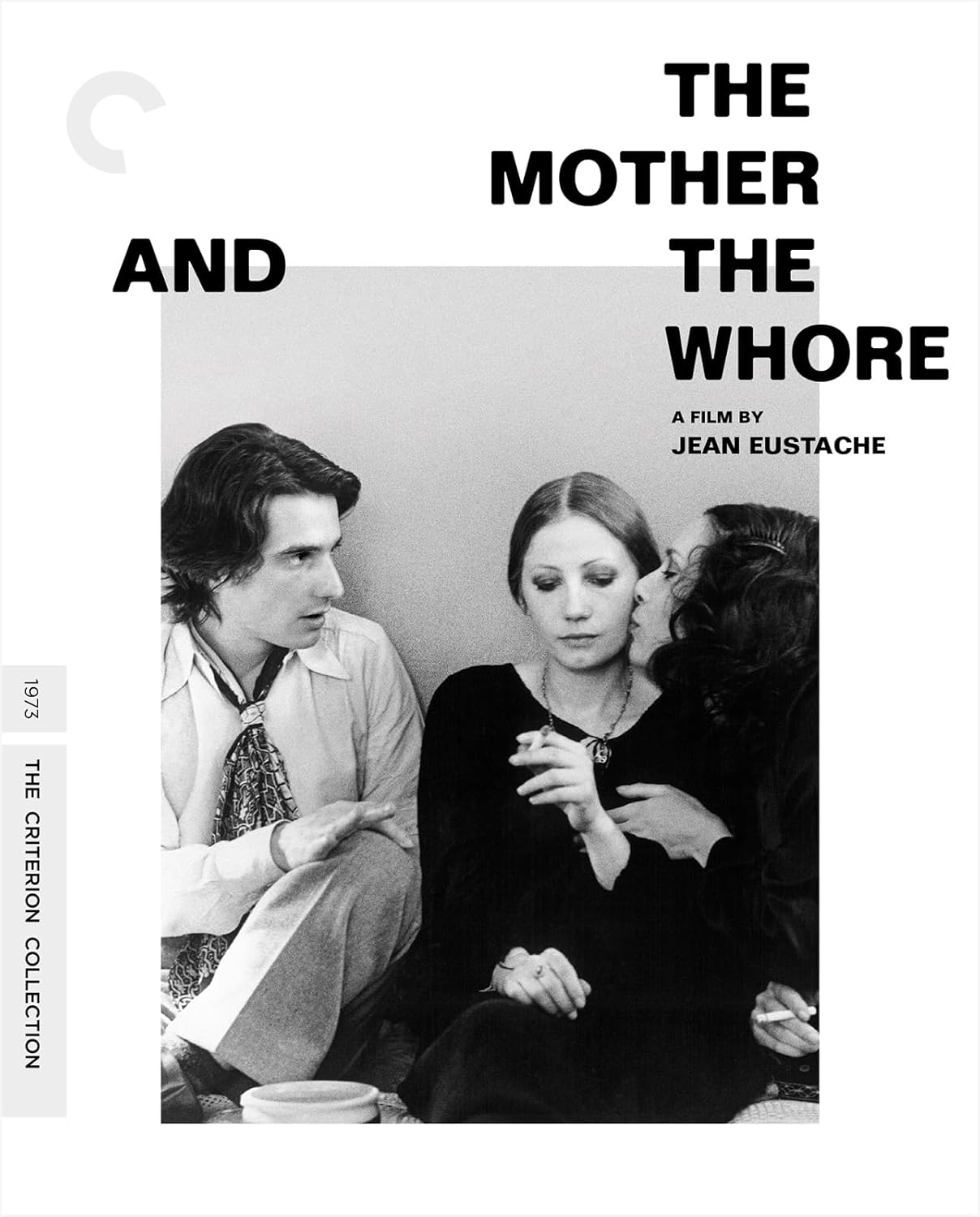 The title of Jean Eustache’s The Mother and the Whore refers to Marie (Bernadette Lafont), whose status as a 30-year-old marks her as effectively middle aged to her modestly younger peers, and Veronika (Françoise Lebrun), a hospital nurse who copes with the tedium of her experience with casual sex. These reductive, misogynistic archetypes of female behavior aren’t reflective of the film’s own views, but those of Alexandre (Jean-Pierre Léaud), a disaffected young intellectual who lives with Marie and is increasingly drawn to Veronika.
The title of Jean Eustache’s The Mother and the Whore refers to Marie (Bernadette Lafont), whose status as a 30-year-old marks her as effectively middle aged to her modestly younger peers, and Veronika (Françoise Lebrun), a hospital nurse who copes with the tedium of her experience with casual sex. These reductive, misogynistic archetypes of female behavior aren’t reflective of the film’s own views, but those of Alexandre (Jean-Pierre Léaud), a disaffected young intellectual who lives with Marie and is increasingly drawn to Veronika.
Alexandre airs his misogyny from the start as he meets up with his ex-girlfriend (Isabelle Weingarten). Speeding past any attempt at reconciliation, Alexandre proposes marriage, then proceeds to rant about her new relationship. Asking if she does the same things with her new beau as they did together, Alexandre maintains an outward veneer of calm but cannot keep the venom out of his voice. And no sooner do the two part than Alexandre catches his first glimpse of Veronika and immediately gravitates toward her, much to the irritation of Marie, who occasionally sleeps with the young man but feigns indifference to this new interloper.
The frictions caused by this lopsided love triangle propels a 220-minute film that consists of little more than dialogue about spiraling jealousy and male presumption, much of which was inspired by Eustache’s own life and a similar romantic entanglement that ended tragically. That closeness to the material might explain the even-handed way with which the film captures the confusion underneath Alexandre’s narcissism and reactionary sexual politics along with Marie and Veronika’s equally compelling contradictions. But it also adds extra weight to the manner in which Eustache offers up Alexandre’s toxicity for clear-eyed assessment and criticism.
As Alexandre regularly monopolizes conversations to rant about oversexualized culture, the failure of progressive politics, and other such topics, a portrait of the young man emerges that’s possibly far more recognizable in 2023 than it was in 1973. Despite all of his sexual dalliances, Alexandre’s repressive views of women’s role as subservient to men and the manner in which he expresses these notions marks him as a prototype of the modern incel. Likewise, his apostasy from his supposed progressivism of his younger days recalls the increasingly common “post-left” figure who trollishly embraces the most reactionary politics possible as “true” rebellion.
Eustache, one of the key figures in post-New Wave French cinema, at times positions The Mother and the Whore as a critique of his forebears’ artistic and personal blindspots. Of particular note is the way that Alexandre’s cinephilia, which he expresses amid his broader personal-political polemics, reinforces his conservative views instead of complicating them. The self-reflexive cool of the early New Wave films is obliquely put on trial as a willful distraction from the festering contradictions of a society that is perilously disconnected from its history.
That carries over into Eustache’s spartan direction, which depicts Paris as something far removed from the hub of chic cool and teenage rebellion that emerged as the New Wave’s loving portrait of the city. Indeed, the film’s vision of the city more closely resembles the shattered postwar Rome documented by the Italian neorealists, albeit here the rubble and bomb craters of one city are replaced by an invisible battleground of socio-psychological scars.
If May ’68 was an attempt to overthrow the status quo of a French society that was still tethered to its old-world colonialism and anti-democratic class system, The Mother and The Whore shows the aftermath of that status quo reasserting itself. Paris in Eustache’s vision seems to consist of nothing but bougie cafés where trendy youngsters gather in their little, self-absorbed bubbles, making connections only for the purposes of meaningless sex and otherwise divorcing themselves from any sense of community. It’s the French urban version of American suburban atomization, and Paris has never looked more utterly alienating and lonely on film.
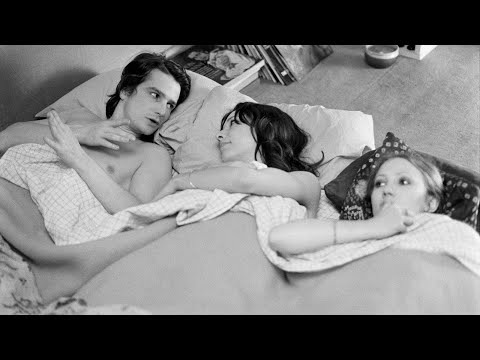
It’s for that reason that The Mother and the Whore is regularly cited as one of the key cinematic dissections of May ’68 alongside Jacques Rivette’s 13-hour magnum opus Out 1. But where Rivette used his magical-realist whimsicality to craft a sense of real conspiracy oppressing his characters, Eustache ingeniously illustrates how easy it is for people’s despair to induce a surrender to forces too big and complex to grasp, presaging the larger political reversal of the ’60s generation toward a zealous embrace of the establishment they once rejected.
Pauline Kael astutely saw Eustache a kindred spirit of John Cassavetes, namely in the way that this film’s main characters manage to reveal deep psychological insights through dialogue and behavior without resorting to the language or obvious gestural signifiers of psychology. Everyone constantly speaks aloud what they’re feeling, but they do so in realistically circuitous, half-finished streams of thought that say more about their internal turmoil and inability to confront the contradictions of their beliefs than any direct speech about such failings.
All of this accumulated psychic weight gradually drives the characters to their emotional limits, but the last hour of The Mother and the Whore carefully delineates Alexandre’s simple-minded nihilism with the more complex assertions of will that Marie and Veronika belatedly demonstrate against his manipulative influence. The women independently work on their mutual jealousy with moments of emotional and even sexual vulnerability with each other, and both ultimately upend the narrow conception Alexandre has of them.
By the end of this richly observed film, Veronika rebels against her designation as a wanton partner by insisting that no woman should be called a whore and that her promiscuity is as much a manifestation of being unable to find one man who respects her enough to be worth committing to as it is evidence of her carnality. For her part, Marie ceases to accept the burden of supporting a man who financially and emotionally leeches off of her, finally calling out Alexandre’s hypocrisies and worthlessness even, and in spite of still feeling some affection toward him. We’re left, then, with the impression that both women will emerge far healthier and more confident from their time together than the man they briefly shared. And perhaps sensing this liberation, Alexandre can only tremble hilariously at his sudden obsolescence.
Image/Sound
The transfer on this Criterion release of The Mother and the Whore, sourced from a new 4K digital restoration, boasts gorgeous contrast and rich white and black levels. Moments where whites or blacks suddenly wash out the image are a result of the unpredictability of the natural light that the filmmakers had to contend with, but even then detail and textures are clear. There are no visible instances of image artifacts or print damage. The mono audio ably presents a soundtrack dominated by dialogue with only the ambient noise of Paris for accompaniment, even the loudest of which never crowds out the dialogue at the front of the mix.
Extras
In a new conversation, filmmaker Jean-Pierre Gorin and author Rachel Kushner unpack The Mother and the Whore’s complex psychological portraiture and place the film in the context of both French society and the Nouvelle Vague in the early 1970s. In a new interview, actress Françoise Lebrun looks back on the film after a half century and reminisces about meeting the critic-filmmakers of Cahiers du Cinéma as a student critic and becoming involved in making films herself. There’s also an interview with Lebrun, Jean Eustache, Jean-Pierre Léaud, and Bernadette Lafont conducted for French TV at the 1973 Cannes Film Festival that covers the impetus of the project, Eustache’s working methods, and the actors’ input in its making.
Elsewhere, a demonstration of the work done for the 4K restoration details the arduous work of repairing camera negatives, digital conversion, and post-production methods used to bring the film back to life. It’s a wonderful look at how far film preservation technology has come in the last few decades and how dedicated the staff of L’Immagine Ritrovata and other studios are to their work. The accompanying booklet contains an introduction to the film written by Eustache, as well as an essay by author Lucy Sante that analyzes the film’s literary properties, given its subtle revelations of character through dialogue and how tied it is to interiority.
Overall
Jean Eustache’s masterpiece finally comes to American home video in an immaculate transfer.
Since 2001, we've brought you uncompromising, candid takes on the world of film, music, television, video games, theater, and more. Independently owned and operated publications like Slant have been hit hard in recent years, but we’re committed to keeping our content free and accessible—meaning no paywalls or fees.
If you like what we do, please consider subscribing to our Patreon or making a donation.

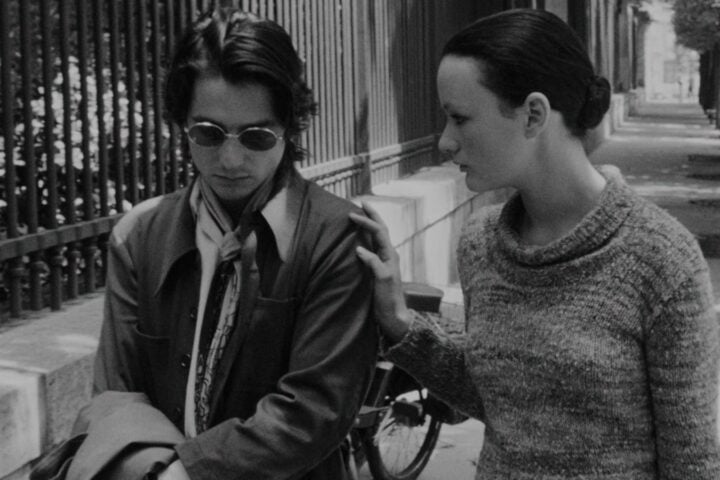

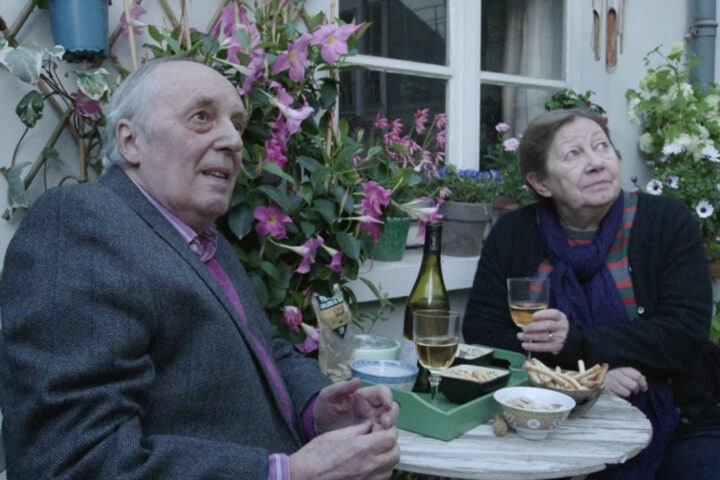
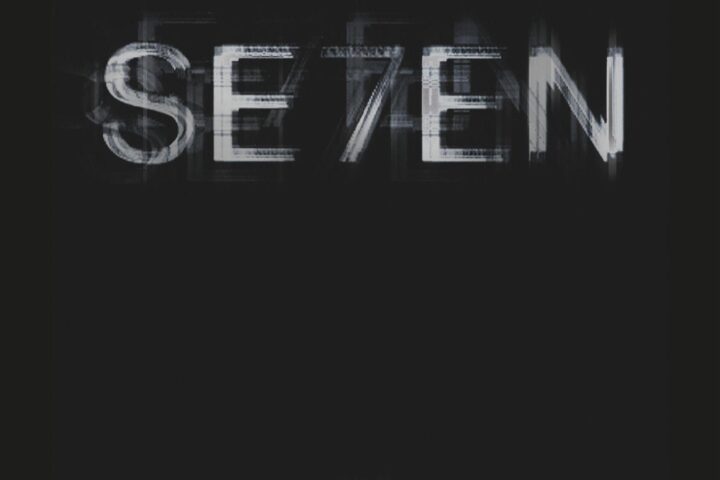

From the review, this release seems like it would easily get four stars and potentially even more; I’m not seeing anything negative mentioned. I’m curious why 3.5, then, unless personal preference about the film itself is coloring what’s supposedly a 4K UHD Blu-ray review.
Thanks for flagging. That should have been four stars. With regard to reviews in the video section, those ratings tend to be informed entirely by the quality of the image/sound/extras.